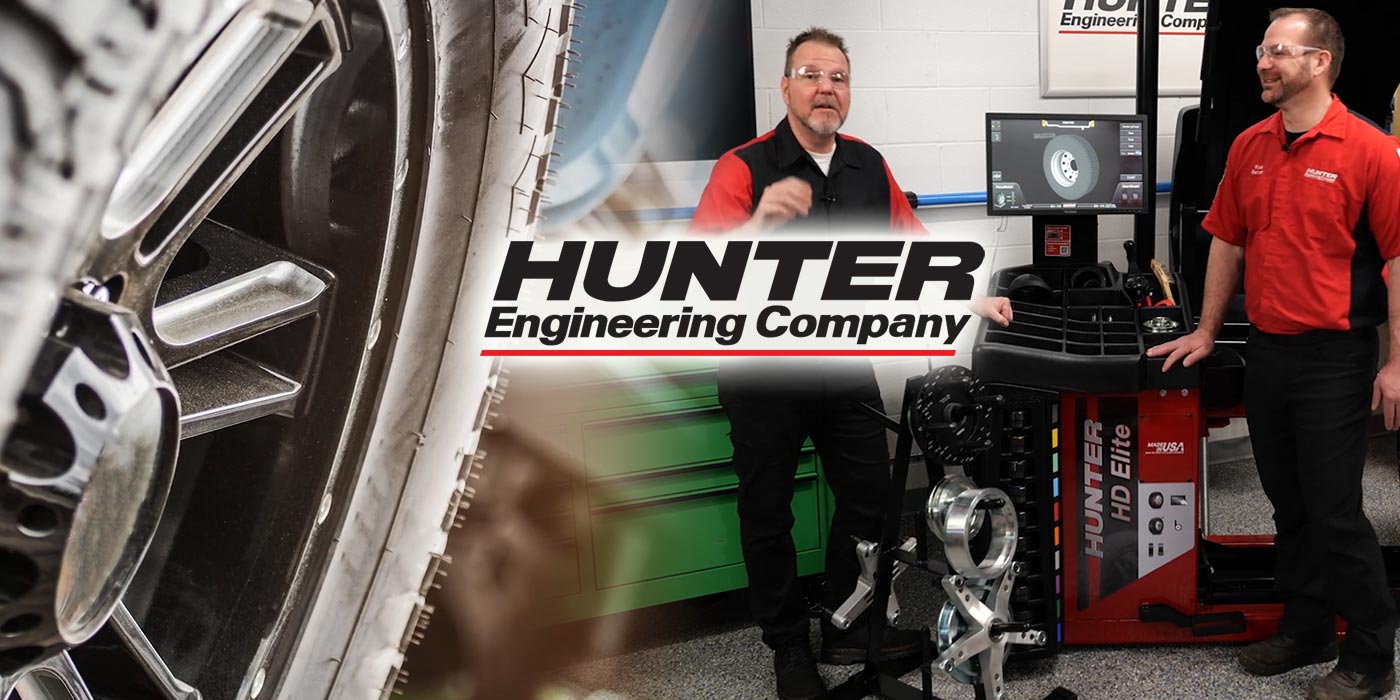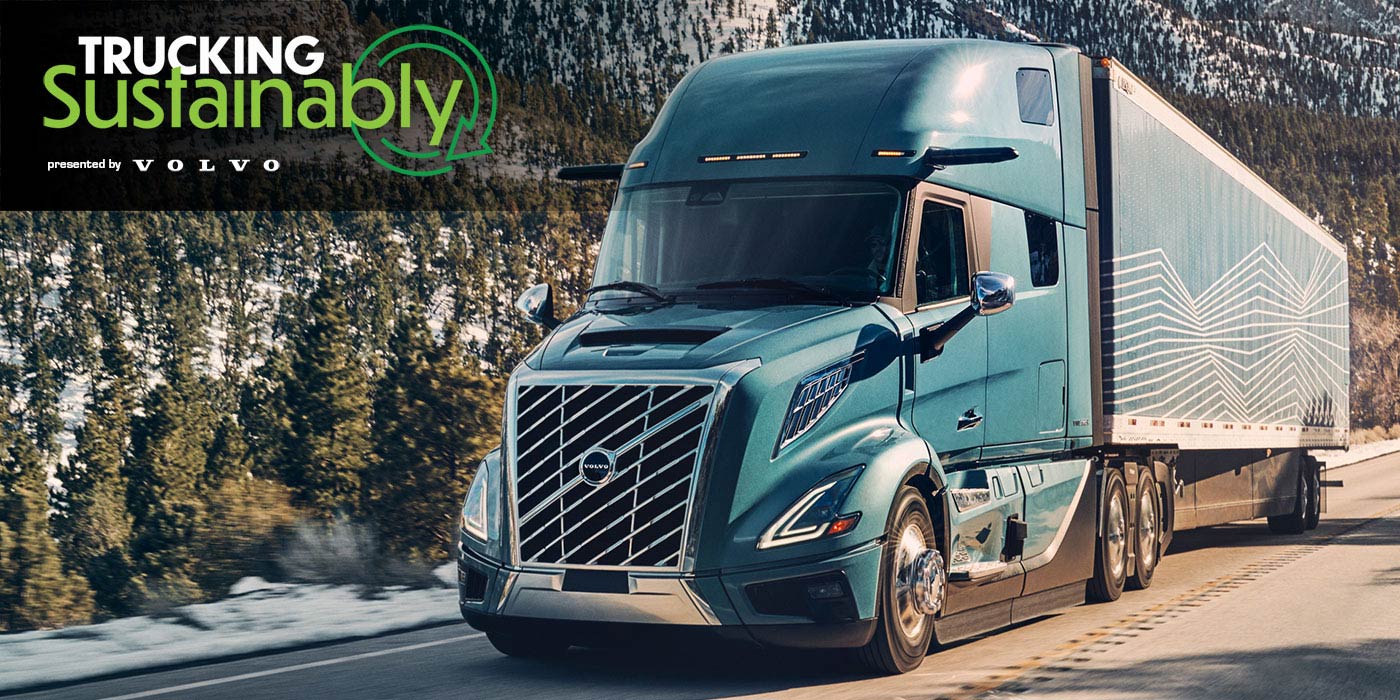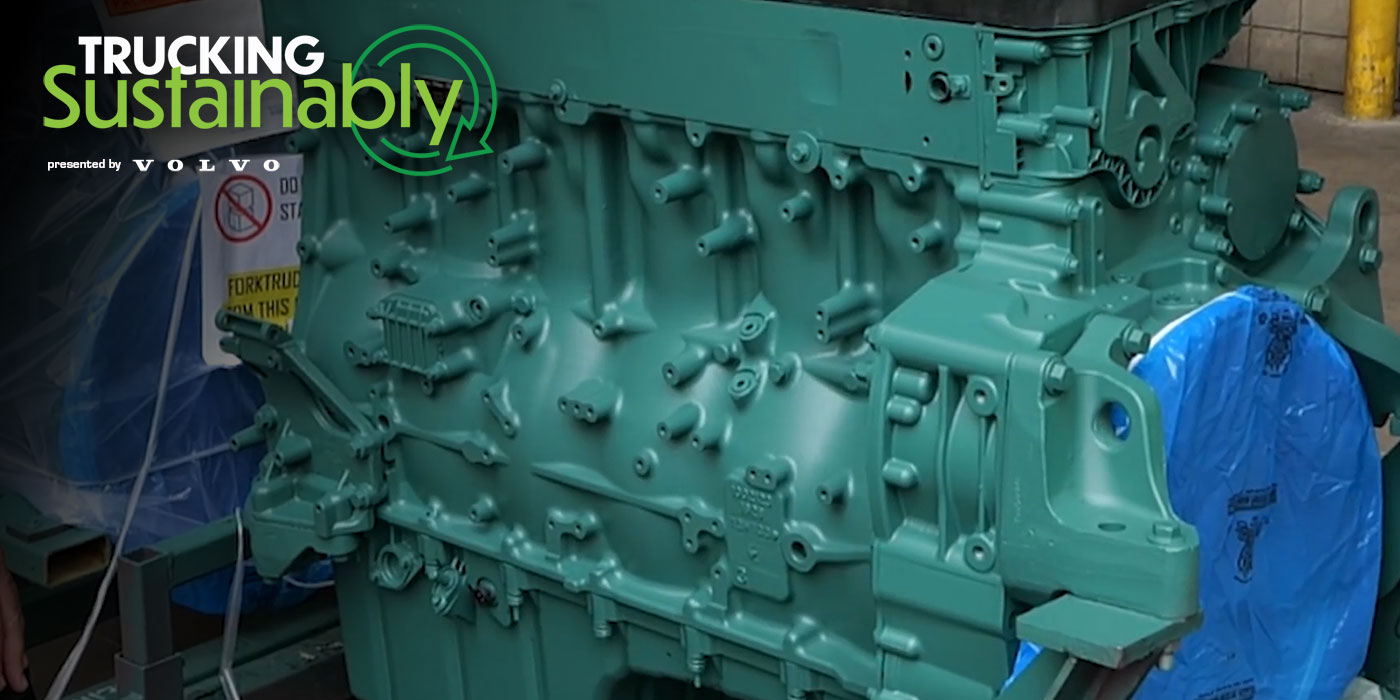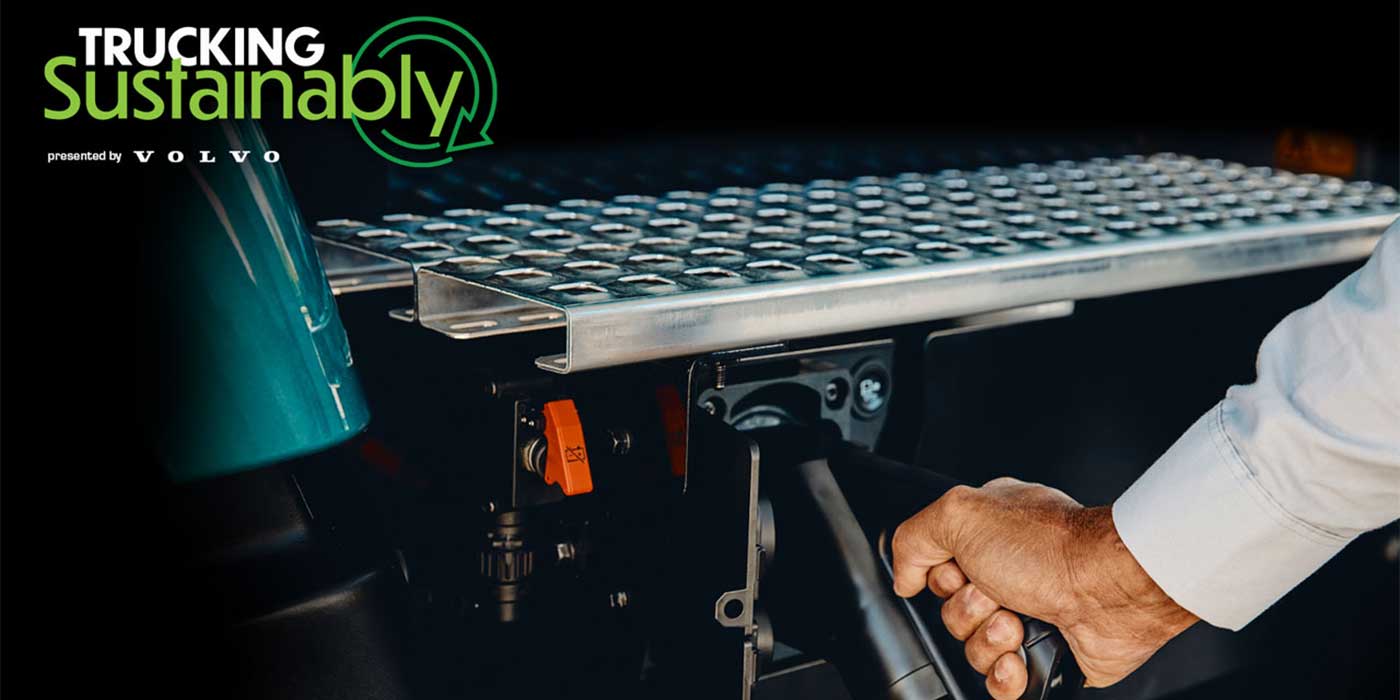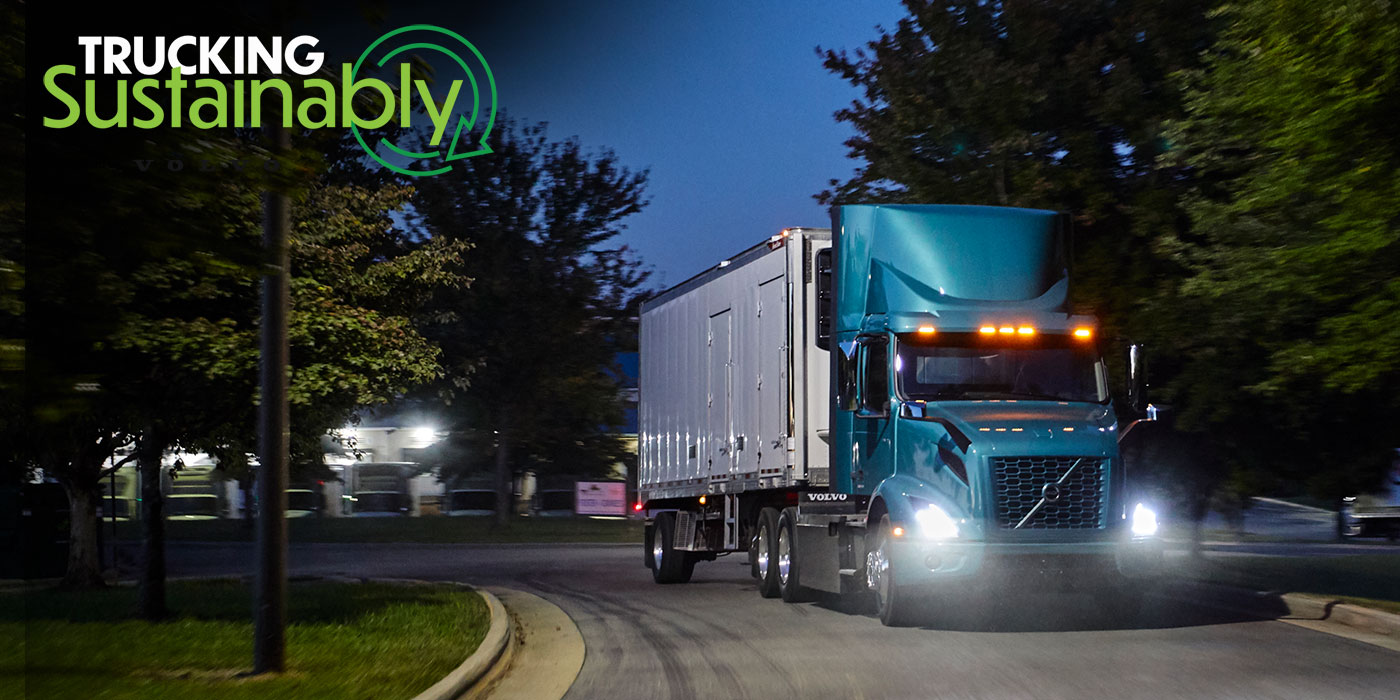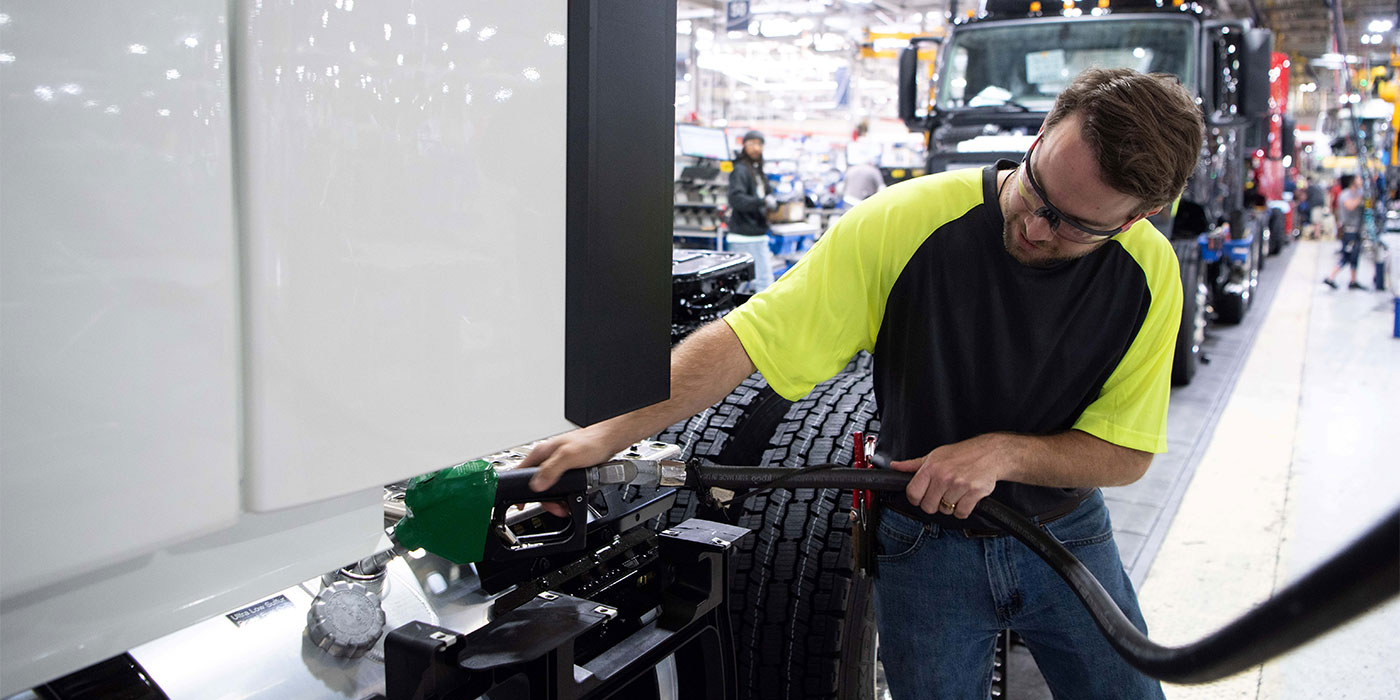For every gallon of diesel saved, there’s a reduction of 22.4 lbs. of CO2 emissions. Putting more fuel efficient diesel trucks on the road can make a big decarbonization impact.
Consider, for example, the up-to-10% fuel efficiency gain of the all-new Volvo VNL. Volvo’s turbo compounding technology is a big example of the advanced engineering behind diesel engine advancements.
By adjusting internal components, such as piston height and rod length, Volvo has achieved a reduction in friction and, consequently, in parasitic losses. This extends to the variable displacement oil pump, which minimizes energy waste by adjusting oil pressure and volume based on real-time needs. These enhancements collectively contribute to a more efficient and environmentally friendly diesel powertrain.
That’s paired with Volvo’s I-Shift transmission with refined software and mechanical components such as the clutch actuation and counter shaft brake. This, Volvo says, has enabled quicker, smoother shifts that keep the engine operating within its most efficient range. These improvements not only enhance the driving experience but also enable the use of faster rear axle ratios.
Watch the video above for a deep dive into the latest diesel engine technology that will push decarbonization forward.

